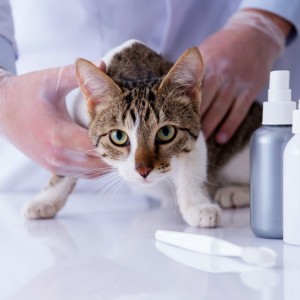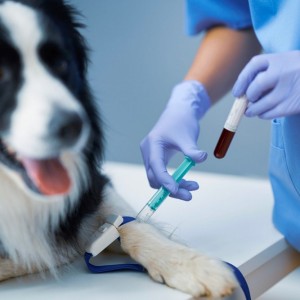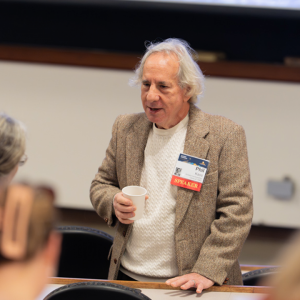USDA grants conditional license for honeybee vaccine
by Jenny Alonge
Honeybees are an important part of our ecological system. Bee experts at the Food and Agriculture Organization of the United Nations state that a third of the world’s food production depends on honeybees, because they are the primary pollinators of plants, including many food crops. Unfortunately, these essential insects face many disease threats, including a devastating disease called American foulbrood. Now, researchers at Dalan Animal Health Inc., in Athens, Georgia, seeking to protect honeybees from American foulbrood, have developed a vaccine that the U.S. Department of Agriculture has granted a conditional license.
What is American foulbrood?
American foulbrood is a fatal bacterial disease caused by the spore-forming bacteria Paenibacillus larvae. The disease is not stress-related, meaning any colony can be infected. Other relevant information includes:
- Transmission — Bacterial spores can be spread between hives and apiaries through beekeeping practices such as exchanging equipment and moving infected combs. In addition, nurse bees that have spores on their mouthparts can spread the disease to larvae. Bee larvae less than 24 hours old are the most susceptible to infection, and only 10 spores are needed to cause disease.
- Pathogenesis — Once the larvae ingest the spores, the bacteria germinate in their gut, multiply rapidly, and eventually kill the infected larvae at the prepupal or pupal stage. Billions of American foulbrood spores are produced when the pupae dies, so the disease spreads further when the adult bees attempt to remove the remains.
- Signs — Potential signs include: the brood pattern often appears irregular or patchy, cell cappings may appear sunken, darker in color, or greasy, because of the decomposing larvae. Cappings may be perforated, because the adult bees remove the dead larvae. Infected hives often have an unpleasant, sulfurous smell.
- Treatment — Terramycin is the only drug approved for use against American foulbrood, but the antibiotic doesn’t kill the spores. Burning the bees, the hive boxes, and all the equipment is the only way to eradicate the disease. Historically, American foulbrood outbreaks in the United States have been controlled using antibiotics, but heavy antibiotic usage resulted in bacterial resistance and negatively affected hive health. In 2017, the Food and Drug Administration (FDA) eliminated the prophylactic use of antibiotics to manage American foulbrood, leaving the industry with no effective strategy.
How are honeybees vaccinated?
Queen bees eat a protein rich substance called royal jelly that is secreted from glands on young worker bees’ heads. A beekeeper places a new queen bee in a small cage with 50 to 200 worker bees that have been fed queen candy (i.e., a substance made of powdered sugar and corn syrup). The worker bees eat the queen candy, produce the royal jelly, and feed the queen. The American foulbrood vaccine, which contains killed whole cell P. larvae bacteria, uses this system to inoculate the bees by mixing the vaccine with the queen candy. The worker bees produce the royal jelly and feed the queen, the vaccine transfers to her ovaries, and when she lays eggs, the hatched larvae have a heightened immunity to American foulbrood.
How effective is the American foulbrood vaccine?
The vaccine manufacturer is currently performing field trials to better determine the vaccine’s effectiveness, but in one limited published study, a vaccinated queen’s offspring showed a 30% to 50% increase in resistance to American foulbrood. Researchers did not want to expose an established hive to an unproven vaccine, so they conducted laboratory studies, exposing test hives to 1,000 times the number of American foulbrood spores' colonies would typically encounter in the wild.
How long does the vaccine last?
Research is still ongoing, but evidence suggests that the vaccine lasts as long as the queen bee lays eggs. If the queen dies, the replacement queen must be vaccinated for protection against American foulbrood to continue.
Why was the conditional license granted?
A veterinary biological product must be safe, potent, pure, and efficacious before a license can be issued. According to title 9, Code of Federal Regulations, part 102, regulations, a conditional veterinary biological product license can be issued to meet an emergency condition, limited market, local situation, or special circumstances. In this case, American foulbrood is the special circumstance. Products granted this status must be pure and safe and have a reasonable expectation of efficacy. The USDA will evaluate the product’s progress throughout the year. The conditional license expires in two years.
How is the vaccine obtained?
The vaccine, which is suitable for commercial beekeepers, queen producers, sideliners, and hobbyists, can be ordered through Dalan Animal Health. No prescription is required.
What other steps should be taken to prevent American foulbrood?
In addition to vaccinating queen bees, tips to prevent American foulbrood include:
- Prevent drifting and robbing between colonies — Placing hives in a haphazard pattern, rather than a straight line, helps prevent drifting and robbing between colonies.
- Avoid sharing among colonies — When possible, avoid sharing among colonies and apiaries. If you must transfer frames, carefully inspect them for disease, and clean all hive tools thoroughly with isopropyl alcohol.
- Avoid wearing leather gloves — Leather gloves can harbor spores. Wear nitrile gloves or use bare hands, which can be disinfected with an alcohol-based hand sanitizer.
- Cull combs — Inspect brood combs at least twice per year for American foulbrood signs, and replace the combs every three years, since old brood combs can act as a reservoir for bacteria.
The American foulbrood vaccine is an exciting development and the first vaccine for any insect in the United States. Hopefully, this vaccine will help pave the way for new vaccines for other issues plaguing honeybees.













List
Add
Please enter a comment